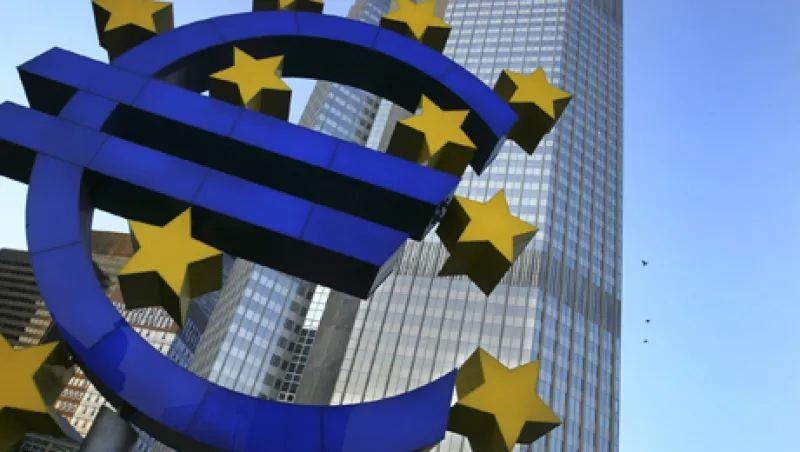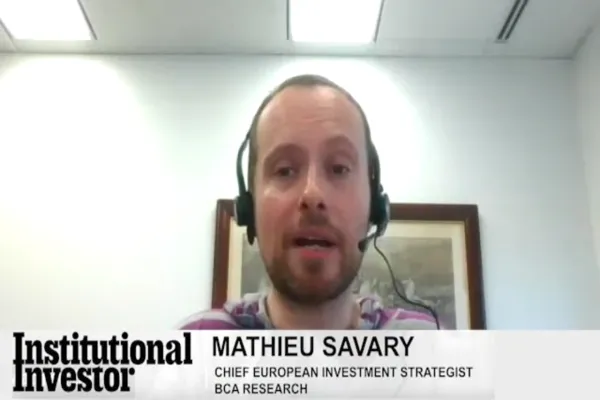The European Central Bank (ECB) has halted its aggressive rate-cutting policy, responding to “tentative” signs that the rapid deterioration of the euro zone economy is running out of downward momentum.
But Mario Draghi, who has already twice supervised a reduction in rates since becoming president in November, at the height of the euro zone debt crisis, hinted that the ECB may need to cut rates again — warning that the outlook “remains subject to high uncertainty and substantial downside risk.”
In more normal economic times, Draghi’s Thursday comments on the euro zone economy would have seemed bleak indeed. Rather than calling an end to the bloc’s slump, Draghi merely said there were “tentative signs of stabilization activity at low levels.” However, his latest assessment of the euro zone outlook, made after the ECB’s monthly rate-setting meeting, was at least less unremittingly bleak than in December and November.
Jens Søndergaard, European economist at Nomura in London, said, “Today’s decision to keep rates unchanged was the right one in our view. The economic data signal an economy that’s contracting but not collapsing.” The ECB’s benchmark interest rate is 1 percent – 0.5 percentage points lower than when Draghi became president on November 1.
The strongest evidence that the euro zone economy is stabilizing comes from the closely watched purchasing manager surveys by Markit, the information company. They suggest that although output shrank in December for the fourth straight month, the pace of decline slowed. The euro zone has been buoyed by the strong performance of Germany, its largest economy, whose labor market is still strong. Survey data suggest its economy may already have returned to growth in December, after briefly dipping.
There are also hopeful signs that financial markets have begun the new year in a calmer mood. Yields on government bonds across the euro zone have fallen. The FTSE Eurofirst 300 index of euro zone stocks has consistently traded at above 1,000 for more than a week, after plunging below 900 in the second half of last year on economic fears.
In particular, Thursday’s successful auction of Spanish bonds helped push down yields in a country where only weeks ago borrowing costs had escalated to the point at which analysts feared a forced bailout by other euro zone member states. Spain managed to sell almost €10bn of three- and four-year bonds — twice the government’s maximum target — at lower rates than in the recent past. This pushed the yield on Spanish ten-years down by 16 basis points to 5.18 percent.
Draghi made clear on Thursday that he saw the becalming of financial markets as crucial to recovery, saying, “Ongoing financial market tensions continue to dampen economic activity in the euro area.” Businesses have slashed investment, and consumers have trimmed spending, while they wait for the euro zone’s economic future to become clearer.
Many analysts regard Draghi’s December decision to offer emergency three-year loans to euro zone banks as key to the recovery in financial conditions. Investor confidence in the banks’ solvency — and therefore in euro zone financial markets in general — was boosted after the ECB lent an unprecedented €489bn to more than 500 banks. The operation has eased fears that wholesale bank funding will freeze up again, as it did after the 2008 collapse of Lehman.
Draghi acknowledged on Thursday how parlous financial conditions had been prior to its December 21 financing operation. He said some “unsecured bond markets” that “were completely shut” beforehand had since “reopened”. Draghi concluded, “The more time passes...the more we see signs that it has been an effective policy measure.”
But despite the success of Draghi’s December financing coup, many economists still expect the euro zone to return to recession this year —damaged by the corrosive effect of the euro zone debt crisis on business and consumer confidence.






